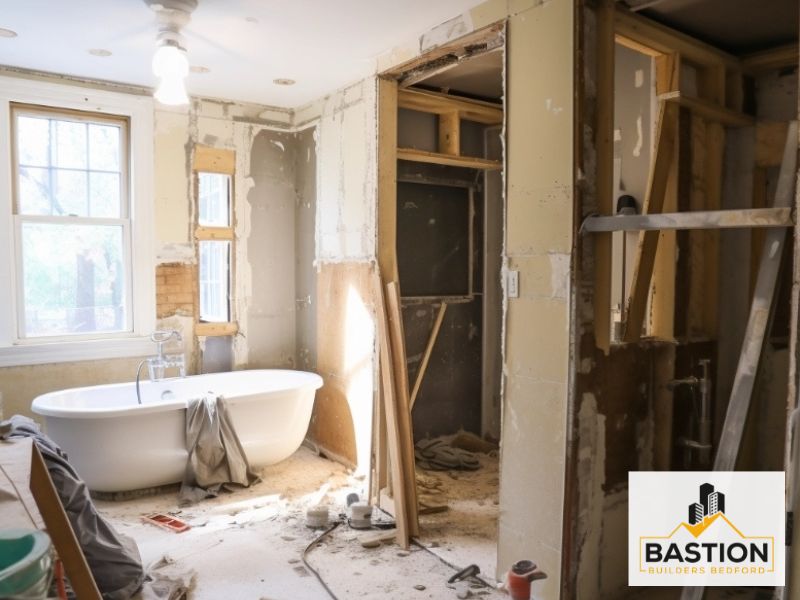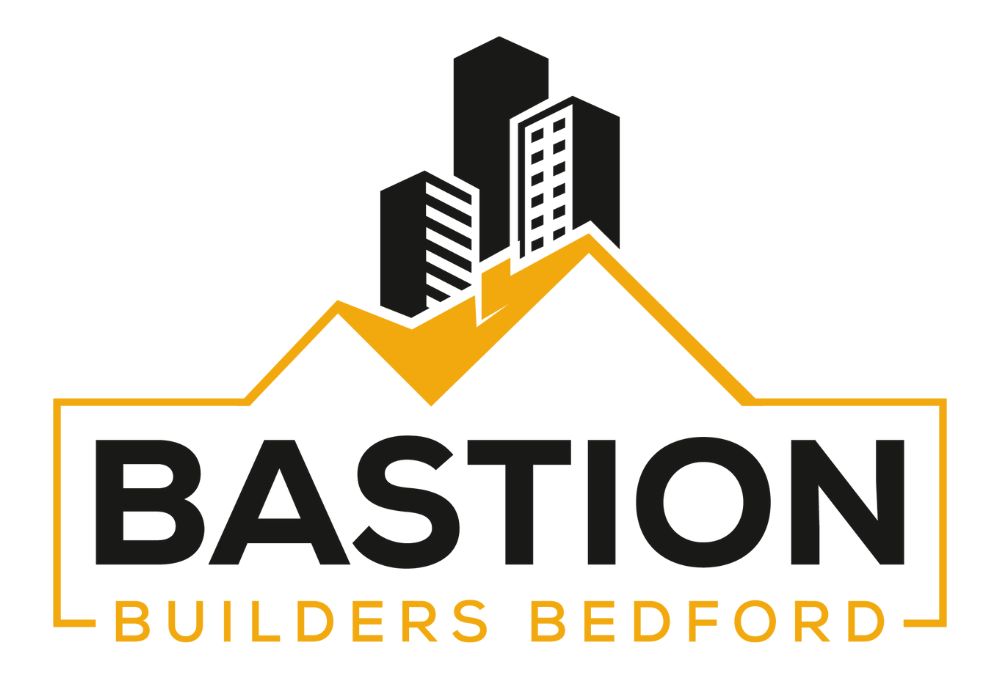Effectively collaborating with local authorities is essential for smooth construction projects in the UK. Our experienced building contractors understand the intricacies of working with councils, planning departments, and building control officers. Contact our building contractors for a free quote and ensure your project complies with regulations and progresses without delays.
Overview of Working with Local Authorities
Local authorities serve as the gatekeepers for land usage and development in their jurisdictions. From initial feasibility studies, through planning applications, and across the entire build, contractors and developers must continuously engage with relevant councils and their departments. Doing so ensures your project remains compliant, on schedule, and completed to required standards.
Key reasons for properly working with local authorities include:
- Obtaining Planning Permissions – Council planning departments must approve all development plans and grant planning permission before construction can legally commence.
- Coordinating Inspections – Local building control officers inspect site works and sign off on discrete sections as building regulations compliant.
- Accessing Roads and Utilities – Councils facilitate access to public roads/pavements, water mains, electrical grids etc. required during construction.
- Limiting Community Disruption – Development plans often require mitigating potential impacts on neighborhoods and residents.
Failing to appropriately work with local authorities carries major risks, including:
- Planning Denials – Neglecting council planning policy or ignoring rezoning requests can see applications rejected.
- Revoked Permissions – Councils can rescind approvals if development contravenes agreed plans or causes excessive disruptions.
- Fines and Prosecutions – Non compliance with regulations brings heavy fines alongside potential stop work notices.
Importance of Compliance and Approvals
The UK’s complex web of planning and building regulations at national and local levels can seem opaque and frustrating to navigate. However, construction firms that build strong collaborative relationships with relevant authorities reap many benefits. These include:
- Shorter approval timelines through supported applications.
- Identifying issues early via productive pre-application meetings.
- More positive community perceptions and less objections.
- Greater long term certainty if disputes arise.
- Avoiding prosecution through transparency and compliance.
In summary, dutifully working with local authorities not only enables legal construction, but facilitates mutually beneficial developments delivered responsibly. We will now examine exactly how to build these vital relationships.
Understanding Local Authority Requirements
The specific permits, plans, policies, fees and approval processes required to undertake building works vary significantly across the UK’s hundreds of unitary, district and county councils. Furthermore, while national regulations set baseline standards, individual authorities can also put in place additional local planning requirements relevant to their areas. Successfully navigating this complex bureaucracy begins with thoroughly researching the relevant authorities and regulations covering your development site.
Research Local Planning Regulations
All construction projects must adhere to both national and local level planning policies and regulations. Key areas you need to research include:
- Permitted Development Rights – The works you can undertake without needing to make a planning application. However, factors like building size, height, location and use can remove these rights.
- Planning Application Requirements – What forms, supporting documents, assessments, fees etc. needed for different application types works like full permissions versus householder consent.
- Zoning Regulations – Constraints on allowable land uses, building sizes, design factors, access requirements etc. within different zoning categories covering your site.
- Other Development Policies – Special conservation areas, industrial decarbonization zones etc. may bring additional policy demands.
Thoroughly reviewing all relevant regulations early in your feasibility studies allows optimizing development plans and avoiding issues later.
Identifying Local Authorities
While development sites often fall under county councils’ remits, you need to also identify and engage all authorities covering your location. These usually include:
Local Councils
- Town, parish and community councils focusing on hyper-local issues. Especially important for consulting regarding community impacts.
Planning Departments
- Specific council departments handling zoning regulations, development policies and making determinations on your planning application.
Building Control Bodies
- Responsible for assessing compliance with building codes and standards. Includes both council building control along with private approved inspectors.
Closely coordinating with this range of applicable authorities ensures you obtain all necessary approvals while addressing both broader regulatory frameworks along with local site-specific considerations.
Initiating Contact with Local Authorities
Prior to formal submissions, smart construction firms preliminarily engage relevant local authorities regarding upcoming developments. This builds relationships, streamlines eventual approvals and avoids unexpected issues arising.
Scheduling Pre-Application Meetings
Formal pre-application meetings provide opportunities to brief key local officials on development plans and gain early guidance. Key reasons for undertaking them include:
- Verifying Local Requirements – Confirms policies, necessary permits, essential supporting materials etc.
- Official Feedback – Authorities highlight areas likely requiring modification or further information to secure approvals.
- Relationship Building – Demonstrates willingness to collaborate, laying foundations for a constructive planning process.
To setup a meeting, directly contact your local planning authority via phone or email. Provide high level project details and proposed agenda talking points for optimal discussion.
Most authorities also provide guidance on pre-application meeting procedures online. Follow any specific processes to expediate scheduling meetings.
Gathering Necessary Documentation
To extract maximum value from pre-application meetings, present the authorities with prepared plans, assessments and documentation to review, including:
- Site Plans and Drawings – Draft outline visualizing the development scale, layout and format.
- Access Plans – Details on connecting and utilizing local transport networks and utilities.
- Community Impacts Assessment – Evaluations of how construction may affect surrounding areas.
This allows officials to provide informed commentary around current proposal viability under local planning policies.
Preparing the Application
Incorporate suggestions from the local authorities into finalized application documentation. Focus on:
- Application Paperwork – Ensuring all necessary forms, technical documents, copies and quantities are complete.
- Supporting Assessments – Expand areas authorities flagged as lacking necessary analysis or details.
- Timelines – Confirm processing times, allowing for requests for further information and engaging with public consultations.
Undertaking these preparation steps will smooth the subsequent approvals process.
Navigating the Planning Permission Process
With preparations completed, submitting a thoroughly researched, high quality planning application aligned to local authority guidance gives you the best chance of prompt approval. However, expect further engagement during their detailed assessments.
Submitting Planning Applications
Most councils now accept online planning application submissions on relevant forms and portals. Benefits include:
- Quicker Processing – Authorities handle digital applications faster than offline paperwork.
- Error Reduction – Online forms highlight omissions and mistakes prior to submission.
- Tracking Status – Portals enable monitoring application progression through the approvals process.
However, complex or large developments may still require hard copy submissions. In all cases, avoid common mistakes like:
- Submitting incomplete forms or forgetting signatures.
- Not providing mandated copies of documents, plans, notices etc.
- Failing to properly notify community bodies of pending developments.
Building a good working relationship with case officers helps rapidly address any issues.
Engaging During Planning Assessments
After submission, councils may raise queries or request amendments during their in-depth planning investigations:
- Information Requests – Rapidly supply any further details sought around development aspects like visual impacts, traffic flows etc.
- Revised Plans – If acceptable within project scope and finances, incorporate requested changes to address authority or community concerns.
- Proactively contact case officers to check if outstanding decisions are pending further inputs from you.
You may also need to send representatives to planning committee meetings to directly relay information supporting your application.
Building Regulations and Inspections
Alongside navigating planning permission frameworks, constructors must facilitate rigorous inspection regimes assessing compliance with building codes and regulations during projects.
Understanding Building Control Requirements
All construction works must adhere to relevant building regulations standards enforced by local authority building control bodies or approved inspectors. Typical assessment areas cover:
- Structural integrity guarantees.
- Fire, emergency and access provisions.
- Energy efficiency and sustainability measures.
- Ensuring safety and accessibility.
You are responsible for ensuring you meet both national benchmarks and any local policies prior to occupation. Note regulations also mandate compliance inspections at discrete project stages.
Coordinating Inspections
Smoothly facilitating inspections requires appropriately scheduling visits across critical build phases, including:
- Pre-Pour – Inspecting footing trenches and steel reinforcement prior to concrete pours.
- Structural – Assessing completed foundational and load-bearing elements.
- Pre-Cover – Checking piping, ducting and wiring before enclosing within flooring or walls.
Maintain regular dialogue with inspectors around upcoming milestone tests, allowing rapid reactions to any identified issues that could impact certification.
For major discrepancies, you may need to submit technical resolutions to regain approvals before continuing, underscoring the criticality of building control compliance.
FAQ
What permits are typically required for construction projects?
At minimum, most major construction undertakings require approved planning permissions from local authorities along with building regulations compliance sign offs. Additional consents might include environmental impact assessments, flood risk analysis, listed building modifications and more depending on the development specifics and local policies.
How long does the planning permission process usually take?
Assuming a valid, well prepared application, local authorities should decide within 8 to 13 weeks. However, further information requests, revisions and public consultations can extend this timeframe considerably in some cases.
What happens if my application is denied?
If planning authorities decide to decline permission, they provide detailed reasoning grounded in conflict with specific local or national planning policies. You can appeal decisions via written representations or formal inquiry hearings. Alternatively, significantly modify proposals to address identified issues and resubmit applications.
Can I make changes to my plans after obtaining approval?
While minor adjustments are sometimes permitted, you typically must resubmit new applications for impactful alterations like increasing housing unit counts, changing building orientations etc. Refusal risks can be reduced by transparently communicating rationales behind amendments with local authorities.
How can I ensure compliance with building regulations?
Leverage detailed compliance checklists and enlist certified inspectors to undertake rigorous examinations at all critical construction stages. Allocate sufficient resources to promptly address and resolve any identified deficiencies.
What penalties could I face for non-compliance?
Beyond revoking occupancy permits, violations bring heavy fines alongside stop work enforcement actions. For extreme cases of negligence or code violations, local authorities can initiate prosecutions and court proceedings potentially resulting in criminal charges.
Thanks for reading our post, feel free to check out our other services:
- Commercial Builders
- Extension Builders
- Home Renovations
- Loft Conversion
- New Home Builds
- Patio & Driveways Builders
- Property Maintenance












